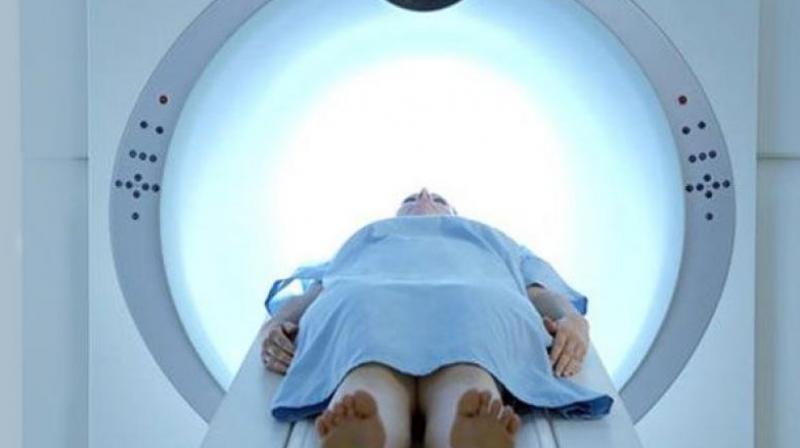Hyderabad: CT, MRI scans a risky affair

Hyderabad: The use of radiation-based imaging like computed tomography (CT) and magnetic resonance imaging (MRI) scans are on the rise, say radiologists, and these can have adverse effect on humans.
Many times, CT scans are suggested without considering the patient’s safety. Also, patients who are unaware of the side-effects of radiation opt for CT scan. Doctors say there is a need to create awareness among people about the adverse effects of CT and other scans. Recent studies show that 2 per cent of future cancers might be caused by CT scans.
Doctors complain that there is no study about the dosage of radiation given to patients in India.
There will be no radiation effect if a person undergoes such scans once in a while, like once in 5 or 10 years. A CT scan is generated by passing radiation through a specific part of the body to general a three-dimensional image. If a person undergoes such scan continuously, then it will have an adverse impact on the human body.
Speaking about the side effects of such radiations, radiologist Dr B. Srihari of Osmania General Hospital said: “Radiation-induced damage is of two types, predictable and unpredictable. It could result in cancer or have genetic effect on children. The estimated lifetime risk from exposure to radiation of 10 mSv is approximately one cancer per 1,000 patients.”
Dr Srihari said precautions should be taken before scanning. “Only low radiation should be given during CT scans,” he said. “The principle of ‘As low as reasonably achievable’ should be followed. Doctors suggest CT scan only when there is clinical indication. Before optimising the CT protocol, it is important to consider potential benefit and overall risks. CT scan should be carried out only when needed.”
He also listed out the challenges before radiologists. “Even we radiologists face adverse effect from radiation. “Our life span is five years less when compared to others. There is no particular study done in India, like how much dosage is given during scans. There is no estimate of how many are essential and how many might be unnecessary. There is need for a regulatory body and standardised procedure.”
Another doctor said that many times people suffering from minor issues like headache, leg pain or neck pain approach them with CT scan reports. “Many are not even aware about the effect of radiation,” said the doctor. “For instance, neck-related problems have gone up in the city. Often people with neck pain just undergo CT scan and visit the doctor with the report. Sometimes, they undergo CT scan when we only prescribe X ray.”
CT scan should be underdone only if a super-specialty doctor prescribes it. Dr Yadagiri Rao, a senior member of the Indian Medical Association, said: “Patients of disease like cancer, TB and others approach doctors. Since doctors have to save their lives, CT scans are suggested. Such tests, when they’re appropriate, far outweigh any radiation-associated cancer risks. The risk from a single CT scan or nuclear imaging test is quite small when it comes to saving a life.”

